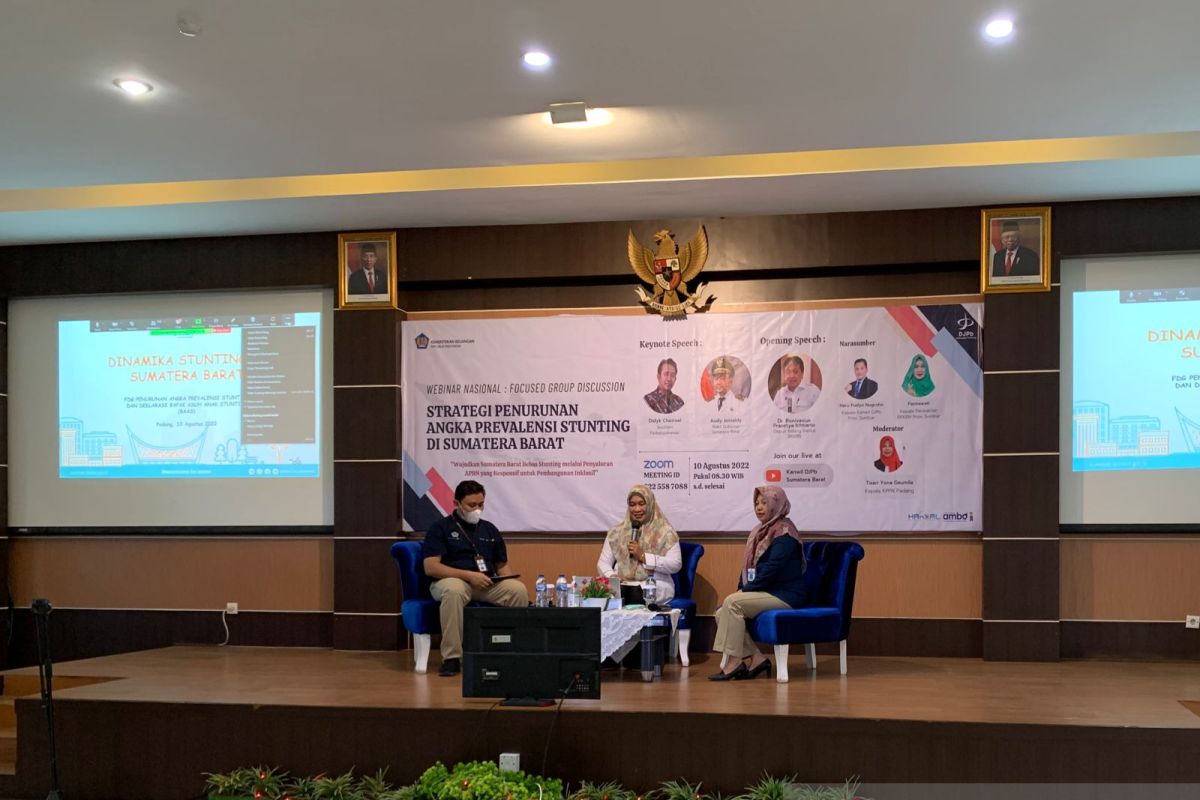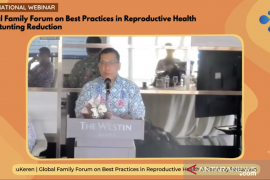This problem must be addressed properly and appropriatelyPadang (ANTARA) - The National Family Planning Population Agency (BKKBN) urged all parties in West Sumatra to gain an understanding of stunting indicators in children for appropriate intervention in the disease.
Deputy for Population Control of BKKBN Bonivasius Prasetya stated here on Wednesday that strong and accurate data was deemed crucial in the efforts to handle stunting and to conduct proper intervention.
He noted that in West Sumatra, the BKKBN had currently formed a Team for the Acceleration of Reduction in Stunting Rates both at the provincial level and in several cities and districts.
"Currently, there are nine regions in West Sumatra where the stunting prevalence rate is above the national level, and even Solok District, which is a food barn, is the area with the highest rate, at 40.1 percent," he said .
Prasetya explained that the figure of 40.1 percent indicated that out of 10 children in the area, four were categorized as suffering from stunting.
"This problem must be addressed properly and appropriately. We must decide steps to handle it," he affirmed.
Related news: Three key variables in PK21 extreme poverty data: BKKBN
Apart from food and nutrition, Prasetya said that the parenting style could also cause stunting in children.
"Some parents entrusted (the care of) their kids to family members while they went to work. At that point, children might be lacking nutritional intake," he explained.
Meanwhile, Head of the West Sumatra BKKBN, Fatmawati, drew attention to several indicators for stunting in children that included families with more than one child under two years of age, parents that are unable to provide diverse foods to their children, and families with no clean drinking water source.
Fatmawati said these facts came to light during a family survey in 2021. She found that 91,146 families in West Sumatra drank water from unhealthy water sources, such as open wells, which could potentially be infected with bacteria.
In addition, the survey also found 284,313 families with no latrine to defecate.
Related news: Immunization can help prevent recurring disease, stunting: official
"That mostly occurred in Padang Pariaman and Pasaman. They defecated in the river and that was unhealthy," she pointed out.
Families living in uninhabitable homes and having babies under two years of age that had not been exclusively breastfed for two years are also prone to stunting, she stated.
Fatmawati noted that the impacts of stunting on children ranged from impaired brain development to reduced intelligence and even impaired physical growth and metabolic disorders.
"The long-term impacts are a decline in children's cognitive abilities and learning achievement, decreased immune system and increased risk of diabetes, heart disease, obesity, cancer, stroke, and disability in old age," she added.
Related news: BRIN develops nutritious biscuits to tackle anemia in pregnant women
Related news: BRIN develops soybean hydrolyzate technology to address malnutrition
Translator: Mario Sofia N, Resinta S
Editor: Fardah Assegaf
Copyright © ANTARA 2022












